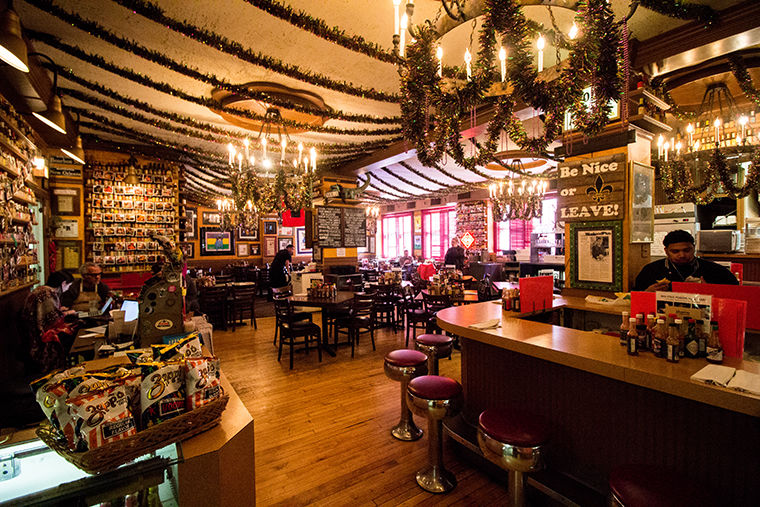Restaurant event aids in HIV awareness
At Heaven on Seven, 111 N. Wabash Ave., a portion of every meal’s cost will be donated during Dining Out For Life April 26 to TPAN in the hopes of preventing HIV.
April 20, 2018
After a three-year absence from Chicago, the international fundraising campaign Dining Out For Life will hit bars and bistros again to raise funds in support of HIV and AIDS prevention.
The April 26 event partners with the Test Positive Aware Network, a Chicago-based nonprofit that spreads awareness and provides treatment and prevention services for HIV, AIDS and associated diseases, to raise funds with revenue-sharing from 75 participating Chicago restaurants.
“Dining Out For Life is a natural fit for what restaurants and chefs across Chicago do pretty much on a daily basis,” said Derrek Hull, a member of the Dining Out For Life planning committee.
Ramesh Ariyanayakam, owner of multiple participating restaurants including Kit Kat Lounge And Supper Club, 3700 N. Halsted St., said he has been participating in Dining Out For Life for a long time and tries to keep money flowing within the community.
“It’s very important for restaurants that are gay-owned to give back to the community and all the different organizations that help, especially with TPAN,” Ariyanayakam said.
According to the U.S. Center for Disease Control and Prevention, there are more than 1.1 million Americans who are HIV positive, but annual infections have declined 18 percent since 2008. Significant progress has been made in HIV prevention since the 1980s, but Berry said there is still a large issue to be tackled.
“The problem for a lot of people [is] they don’t even have access to medications or they don’t have insurance, more in the rural states and the South especially where you see high rates of the epidemic. They sometimes have to drive two hours to get to a doctor that will see them.” Berry added.
While HIV diagnoses continue to decline, approximately 15 percent of estimated carriers have not received a diagnosis and are unaware of their infection.Young people are the most likely to go undiagnosed, with an estimated 44 percent of HIV positive people aged 13–24 unaware they are living with HIV, according to the CDC.
“If there are issues around homelessness or financial instability, or general mental health issues, people aren’t going to take their medication every day necessarily as prescribed unless they have those issues addressed first,” Berry said. “It’s not only access, it’s also providing the support services around that to make sure people remain adherent to their medication.”
Berry said the funds raised by Dining Out For Life will go to the TPAN programs such as the syringe exchange, which provides clean and sterile needles to prevent the spread of HIV.
“[It’s] largely unfunded, but we do it anyway because we know it provides a service to our clients that they otherwise wouldn’t have access to,” Berry said.
According to its website, Dining Out For Life raises more than $4 million annually, and the money stays local.
“What’s great about the restaurant community, not just in Chicago, but around the country, [is that] they are the cornerstone of communities,” Hull said. “[They’re] not just great places to celebrate birthdays and anniversaries, they’re also the first to roll up their chef coat sleeves and give back in tremendous and meaningful ways.”








